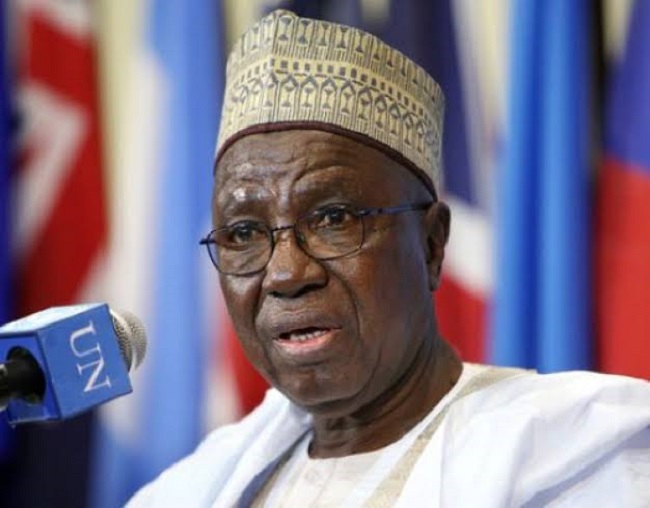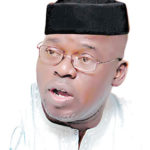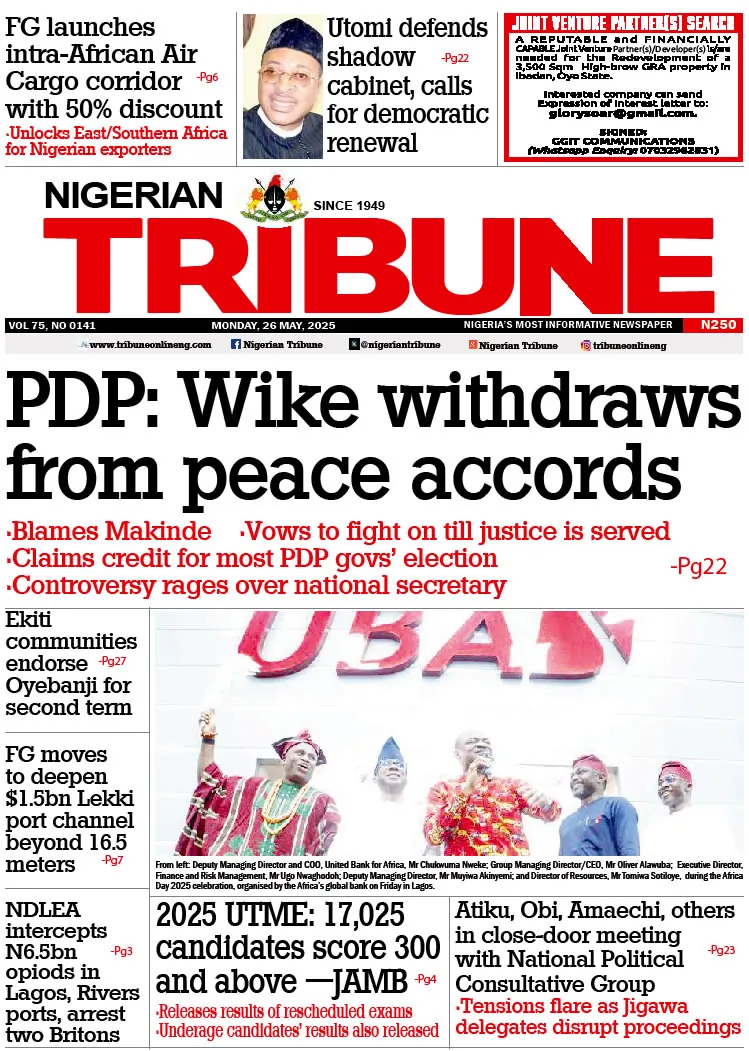A former Minister of Foreign Affairs, Amb Aminu Wali, on Wednesday, said the country had been unsuccessful in pushing for a position as a permanent member of the United Nations due to the efforts in ensuring peace in Africa.
Wali, who was a permanent representative to the UN, stated this during the public presentation of a book, “Reflections on Nigeria’s Foreign Policy” authored by Emmanuel I. Ukhami, Toby Okechukwu and Tony Onyishi in Abuja.
He said: “Although no other country in Africa deserves it more than Nigeria, it has not been able to attain it because despite suffering to ensure peace on the continent, it is not appreciated by other African countries.
According to him, “We have not been successful in trying to push our position as a permanent member in the United Nations. In Africa, no country deserves it other than Nigeria, but we have not been able to make it and this is because while we may have a policy that is Afrocentric but at the same, we are not getting the same respect that we give our neighbours and colleagues in Africa because we have suffered to ensure that there is peace and security in a lot of parts of Africa.”
This position was echoed by the Deputy Minority Leader of the House of Representatives, Toby Okechukwu, a co-author, who said Nigeria’s Afrocentric commitment was not adequately reciprocated by her African counterparts.
He said critics have faulted the country for lack of defined national interest and direction in her foreign policy pursuit, hence, her inability to show off tangible benefits from all her benevolence in Africa.
ALSO READ FROM NIGERIAN TRIBUNE
- Dejo Tunfulu: ‘I Thought It Was April Fool Prank’
- 2023: I May Emerge Consensus PDP Presidential Candidate — Peter Obi
Okechukwu said, in this regard, the trajectory of “Afrocentrism” as a directive principle of foreign policy was examined and put in temporal dimension, so it might be easy to appreciate its decline in relative importance.
According to him, “the nagging issue of Nigeria’s shrinking voice in critical diplomatic circles may also be appreciated vis-à-vis contemporary socio-economic challenges at home. But then a robust tradition of diplomatic engagement will not only ameliorate this but would also garner a reasonable level of image prestige. Again, this speaks to the integrity of institutions and their ability to withstand pressure.
“The country must make all efforts to industrialise, keep pace with the present global technological innovations, and genuinely democratise by permitting her citizens the fundamental human rights they desire and strive to enjoy. Nigeria will only achieve these feats if her leadership is focused on achieving national interest and not self-centred interest based on ethno-religious identities and partisanship.
“This is why the nation must also institutionalise her core national values, philosophy and culture that will act as a compass for good leadership. This will help the nation to see national interest through the prism of core national values. The country needs to reposition its foreign policy strategy to meet up the current international realities if it must be taken seriously among the comity of nations.
“All said, no amount of diplomatic craftsmanship can make a country successfully project her image significantly above the level of her real-time socio-economic and political development circumstance. Therefore, a focus on development issues is key in building a strong and influential voice in regional, continental and global affairs,” Okechukwu said.
He said the book was the product of efforts to critically examine in chronological order, the leading variables that have asserted their salience in shaping Nigeria’s official stances and responses to forces on the foreign scene.
“Accordingly, we have tried to reflect on the impact of internal and external factors, such as colonialism, the personality of leaders, the level of development, the press, regime type, international organisations, non-alignment, cold war, terrorism and globalisation. For instance, in the case of the “personality of leaders”, the chronological method of presentation has enabled us to examine two apt personalities in the conduct of Nigeria’s foreign policy since independence. They are Chief Olusegun Obasanjo and Alhaji Muhammadu Buhari. Both have had two turns in governing Nigeria in military and civilian (arguably democratic) regimes. It will be interesting to look at the role of personality in these cases,” he said.
Speaker of the House of Representatives, Femi Gbajabimila, in his remarks said that Nigeria’s foreign policy must “unapologetically define the terms on which we engage the rest of the world to address the different manifestations of our shared challenges so that we can each and together survive through this new age of promise and peril.”
He said to do this, we must establish the values that define us, and be clear about the concerns that motivate us and the interests that inspire us.
According to him, “Our nation’s foreign policy defines the terms on which we engage with the rest of the world. It is through our foreign policy that we declare who we are, what we stand for, and the principles we hold dear and will defend as we have done here at home and abroad in South Africa, Liberia, Sierra Leone and everywhere else we have been called.
“In this new age, when we are confronted by challenges that affect us all, a global response is the best way to ensure our collective survival. From issues of public health to the challenges of terrorism and the myriad difficulties of globalisation, international collaboration is necessary to find and implement solutions that will improve the lives and circumstances of people all over the world.”
He said that the authors have, in the best tradition of statesmen, undertaken a comprehensive and scholarly review of the foreign policy of Nigeria from independence to date.
“They have used the instruments of research and data analysis to help us understand how our foreign policy has evolved over the years and how foreign policy decisions have both hindered and advanced the cause of Nigeria on the global stage,” he said.
The Speaker said that the subject of foreign affairs and its frontiers have been expanded beyond its traditional enclave.
According to him, “Today, world affairs are now a part of legislative work all over the world. Indeed, the 9th House has adopted legislative diplomacy and used it to intervene successfully in foreign relations between Nigeria and South Africa, China, Ghana and most recently, Ukraine.”






